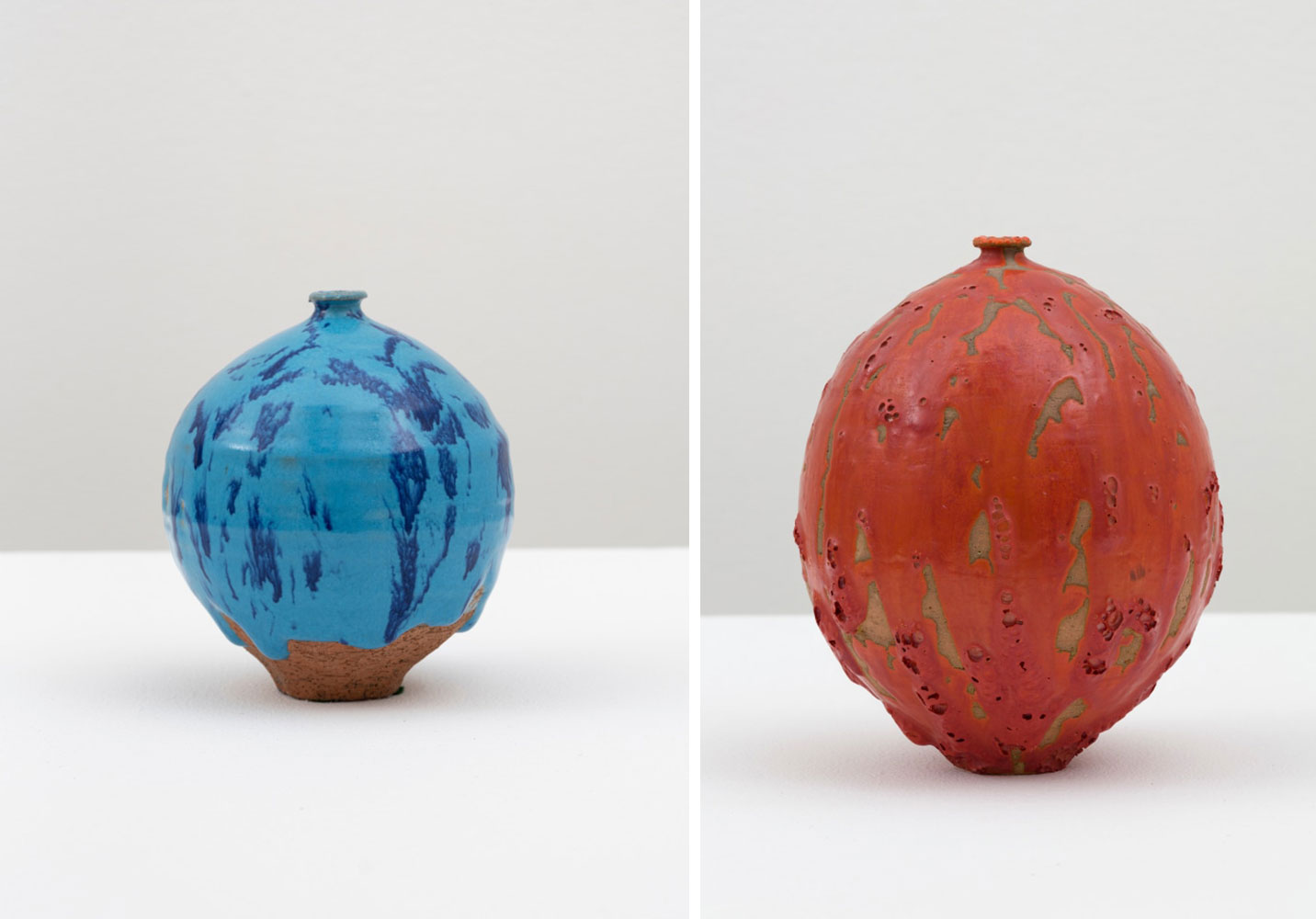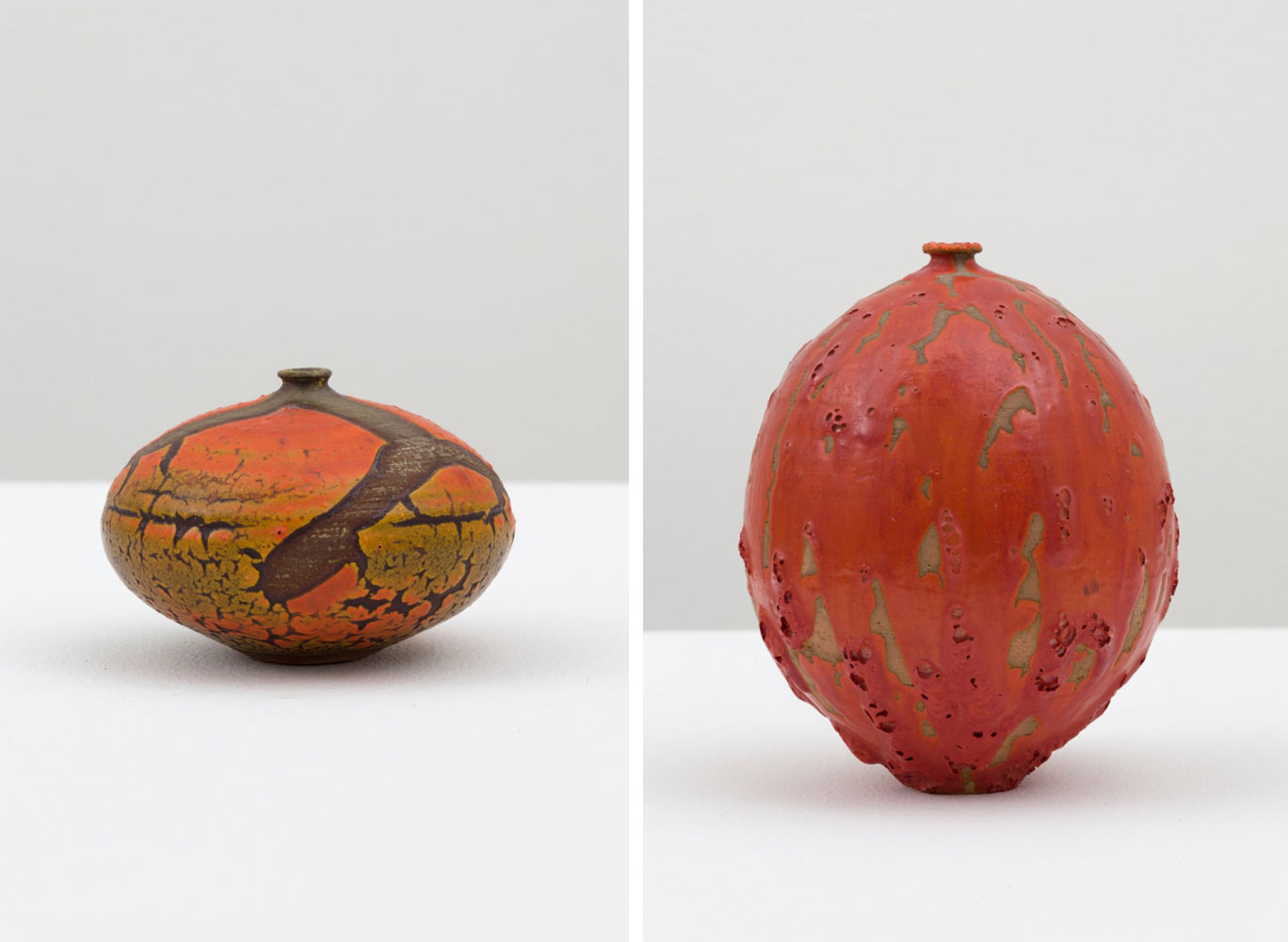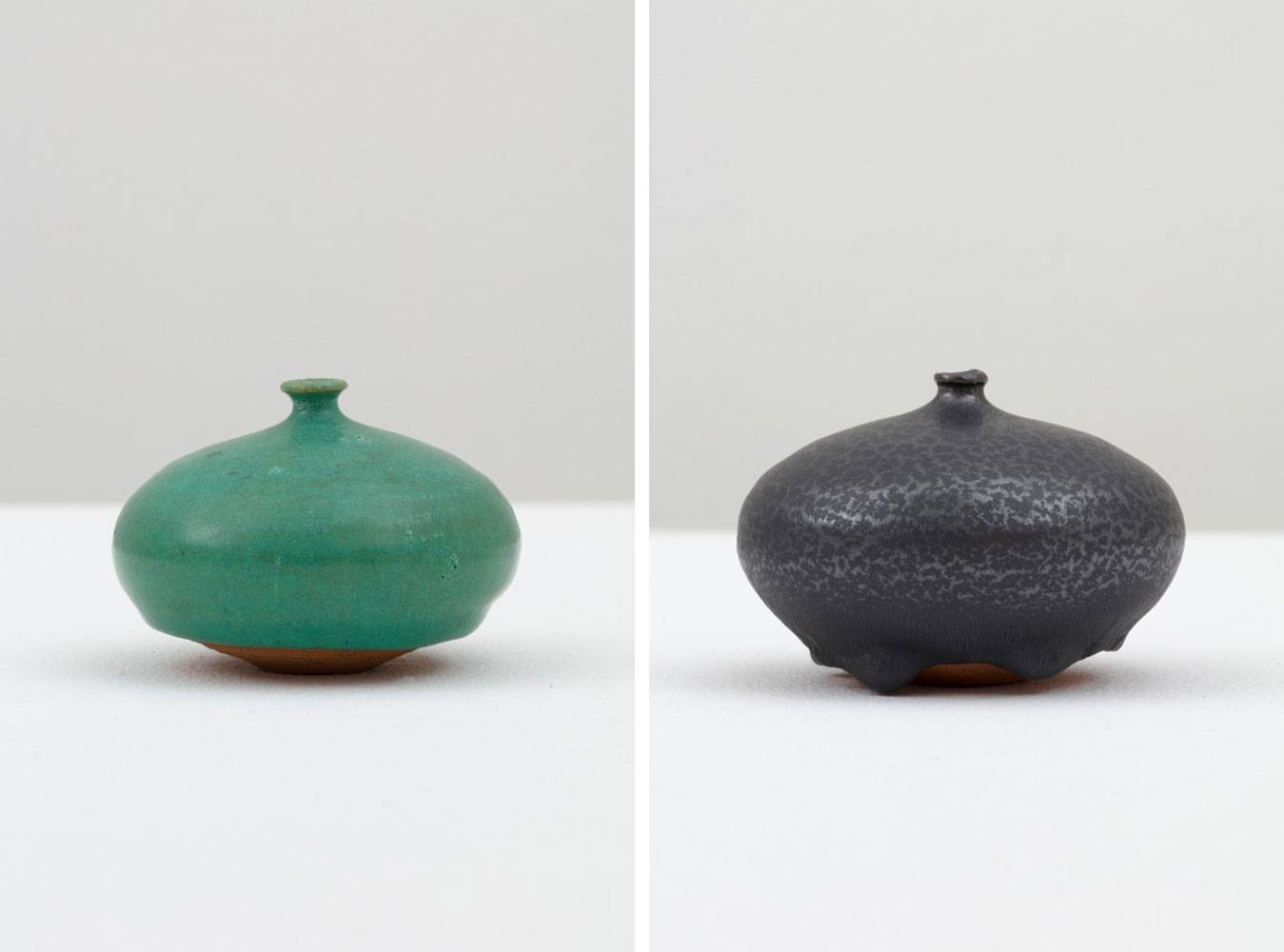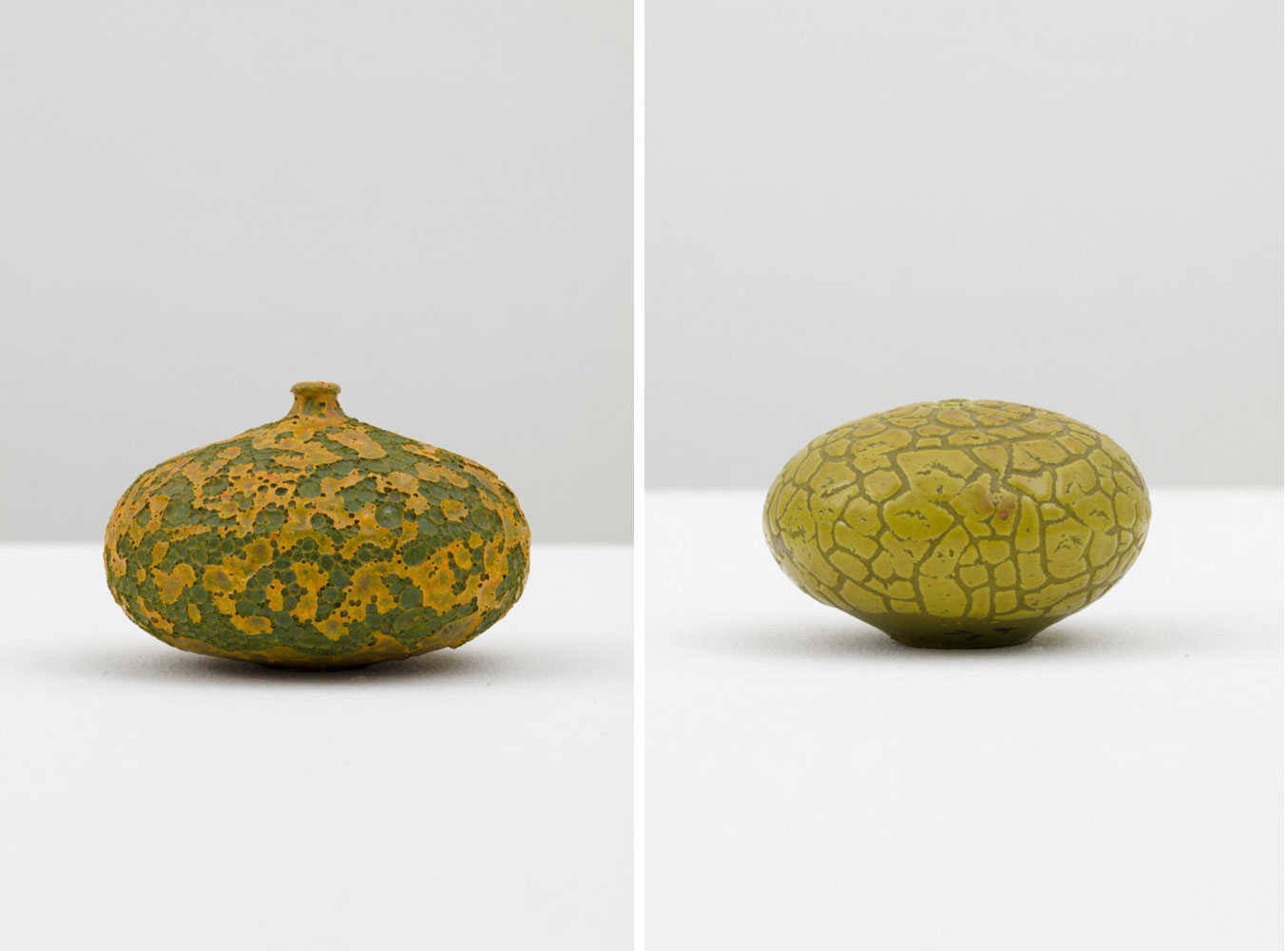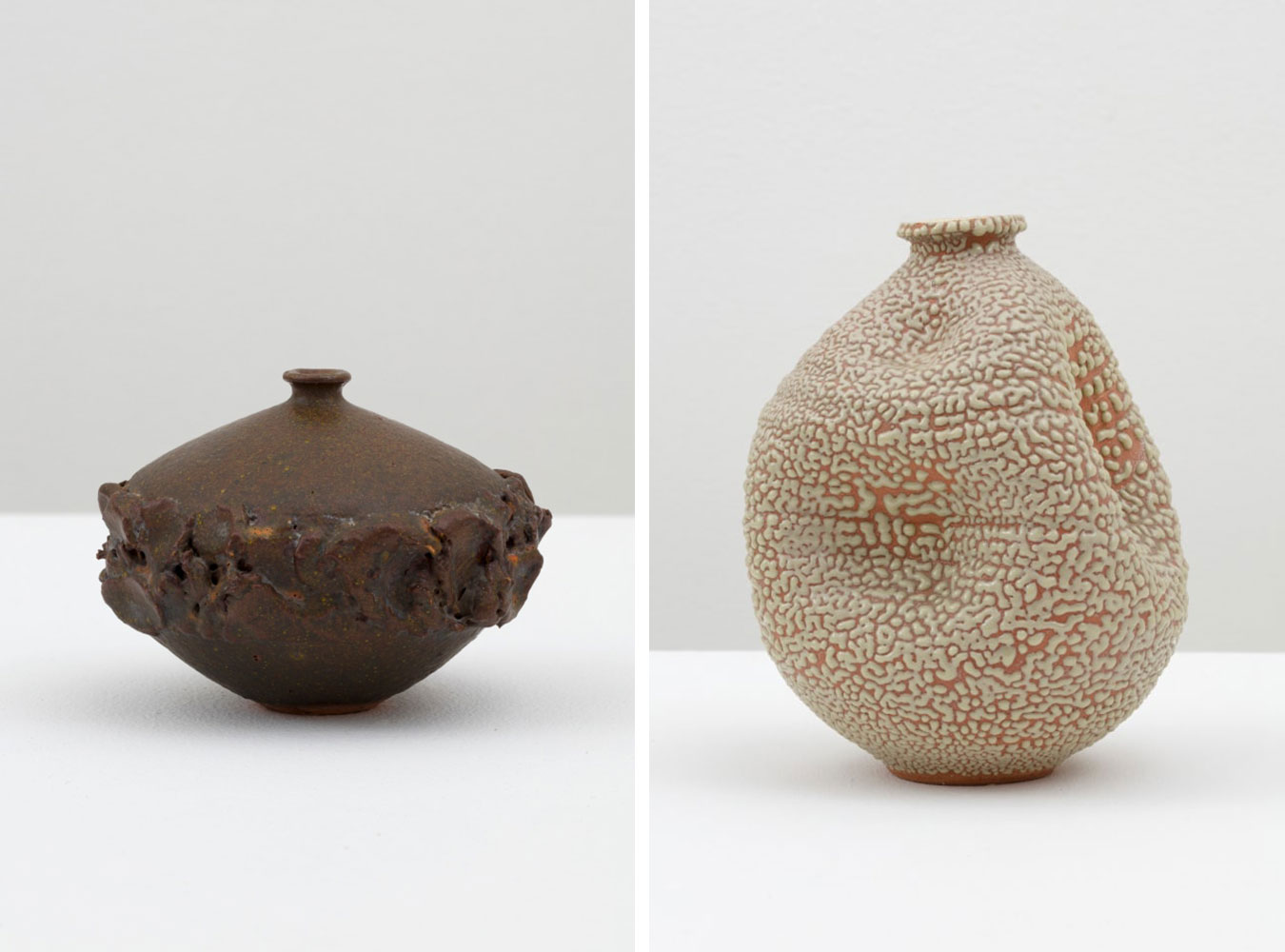ART CITIES: N.York-Doyle Lane
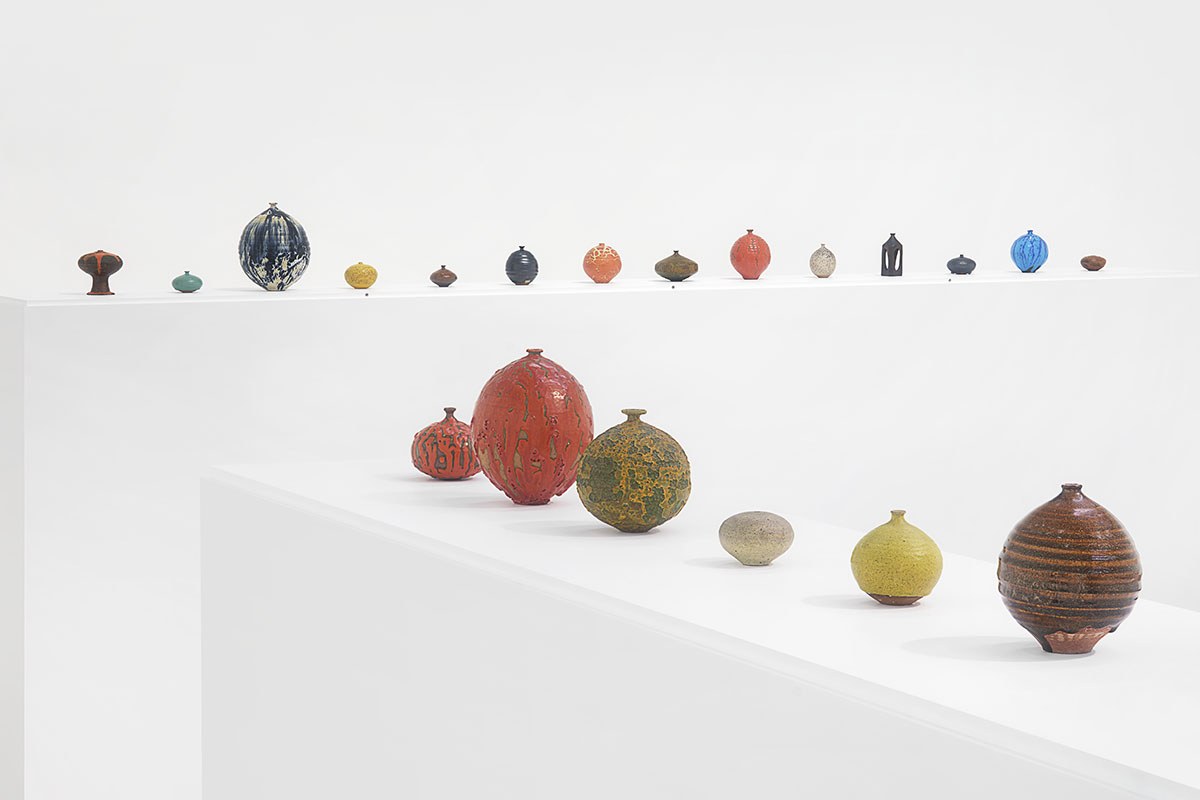 Doyle Lane was a defining voice in twentieth-century West Coast studio ceramics and an important figure in the community of Black artists who established themselves in postwar Los Angeles. After moving from New Orleans in 1946, Lane worked from a home studio in the El Sereno district of Los Angeles for most of his career, supporting himself as a production potter. His pottery, clay paintings, studio jewelry, and large-scale murals all evince his command of sculptural form and his innovative approach to glazing.
Doyle Lane was a defining voice in twentieth-century West Coast studio ceramics and an important figure in the community of Black artists who established themselves in postwar Los Angeles. After moving from New Orleans in 1946, Lane worked from a home studio in the El Sereno district of Los Angeles for most of his career, supporting himself as a production potter. His pottery, clay paintings, studio jewelry, and large-scale murals all evince his command of sculptural form and his innovative approach to glazing.
By Efi Michalarou
Photo: David Kordansky Gallery
Doyle Lane was a defining voice in twentieth-century West Coast studio ceramics and an important figure in the community of Black artists who established themselves in postwar Los Angeles. His pottery, clay paintings, large-scale murals, and studio jewelry all evince his command of sculptural form and his innovative approach to glazing. Featuring nearly 100 works, the exhibition “Doyle Lane: Weed Pots” is an expanded iteration of a related exhibition of sixty pots that took place at David Kordansky Gallery’s Los Angeles location in 2020. This exhibition includes additional vessels from collections that have come to light over the last three years and reflects advances in scholarship that were made during the production of an eponymous catalogue published by the gallery that documents the 2020 show. It also marks the first time that Lane’s work has been featured in a solo exhibition in New York. After moving from New Orleans in 1946, Lane worked from a home studio in the El Sereno district of Los Angeles for most of his career, supporting himself as a production potter and marketing his work in a wide variety of contexts that allowed him to produce more experimental work on his own. He began by participating in design review shows and crafts fairs, selling work from his own showroom, and later taking on large-scale mural commissions from architects. Over time he gained the collegial admiration of many local artists and potters leading to exhibitions at notable Los Angeles institutions like Ankrum Gallery and Brockman Gallery. Founded by brothers and fellow artists Alonzo Davis and Dale Brockman Davis, Brockman Gallery hosted early significant exhibitions by artists such as David Hammons, Noah Purifoy, and Betye Saar, among others. Lane disregarded distinctions between fine art and craft, not because they felt limiting, but because he sought to create beautiful, transfixing objects that made their way out into the world and that, when sold, enabled him to live as he preferred. The humble radicalism inherent in this position can be seen—and felt—throughout his work, but it is especially alive in the weed pots. Describing the experience of viewing examples shortly after Lane made them, artist Stanley C. Wilson observed that, “After coming from the outside environment of earth and trees around his studio, you’d come inside and see these bright, bright colors.” Lane’s legendary work ethic and self-reliance helped define the formal constraints within which he experimented freely, so that his roles as artisan and visionary artist were complementary and mutually enriching.
Ostensibly designed to hold the individual sprigs of dried plants that give them their name, the weed pots constitute an astonishing array of shapes, proportions, colors, and textures. As Swallow notes in his catalogue essay, they are “alternately fruit-like, pod-like, flying saucer-like, or urchin-like.” Works added to the exhibition for this occasion—many of which have never been publicly exhibited—introduce new formats and testify to Lane’s penchant for establishing series of themes and variations that in turn generated singular exceptions. A case in point is a carved bottle-like vessel previously in the collection of artist Charles White: by working more overtly with negative space in this instance, Lane provided intriguing clues about the importance of the interior volumes of the weed pots, whose openings, as Swallow also remarked, are “so small they can appear as if they are holding a breath.” The weed pots fascinate as condensed statements of shape and color that are as straightforward as they are sophisticated. They are also expressions of technical ingenuity, an intuitive sense of balance, and careful dedication to the multiple stages of ceramic production. A round, turquoise blue pot with rough-hewn sides and a smooth, dome-like top, for example, synthesizes the earthiness and ethereality that find equal billing in Lane’s work. About the size of a softball, it feels both like an enlarged model of a floral bulb and a hand-held version of a planetary globe, with its glazing simultaneously communicating depth and focusing the eye on the varied surface of the clay. Writing about the clarity of Lane’s forms and the nuanced approach with which he selected and applied glazes to them, ceramicist Lee Whitten observed that “potters think about the glazed piece as they make a form, but then the bisqued pot offers up a blank canvas; mistakes can be made. Doyle pretty much had it covered through sheer experience and an absolute knowledge of what his glazes could do.” Such knowledge is on full display in this exhibition, with weed pots installed in grouped sequences that highlight both the depth of Lane’s experience (he had worked as a glaze calculator for the industrial chemical company L.H. Butcher), the seriality of his process, and the unique properties of each object he produced. These qualities, along with the democratic means by which Lane made sure the weed pots could be seen and acquired, attracted a broad range of collectors who, for many years, comprised a discreet society of passionate admirers. The expansion of this group in recent years is a testament to the enduring power of Lane’s work and its prescient evocations of contemporary aesthetic concerns. At once local and universal, rooted in a particular time and enduringly timeless, the weed pots are the creations of an artist whose ambition was inseparable from his humility and whose impact is an expression of his commitments to sensitivity, precision, and the power of handmade things.
Photo: Installation view “Doyle Lane-Weed Pots”, David Kordansky Gallery-New York, 2023, Courtesy David Kordansky Gallery
Info: Curator: Ricky Swallow, David Kordansky Gallery, 520 West 20th St., New York, NY, U.S.A., Duration: 23/6-4/8/2023, Days & Hours: Mon-Fri 10:00-18:00, www.davidkordanskygallery.com/
